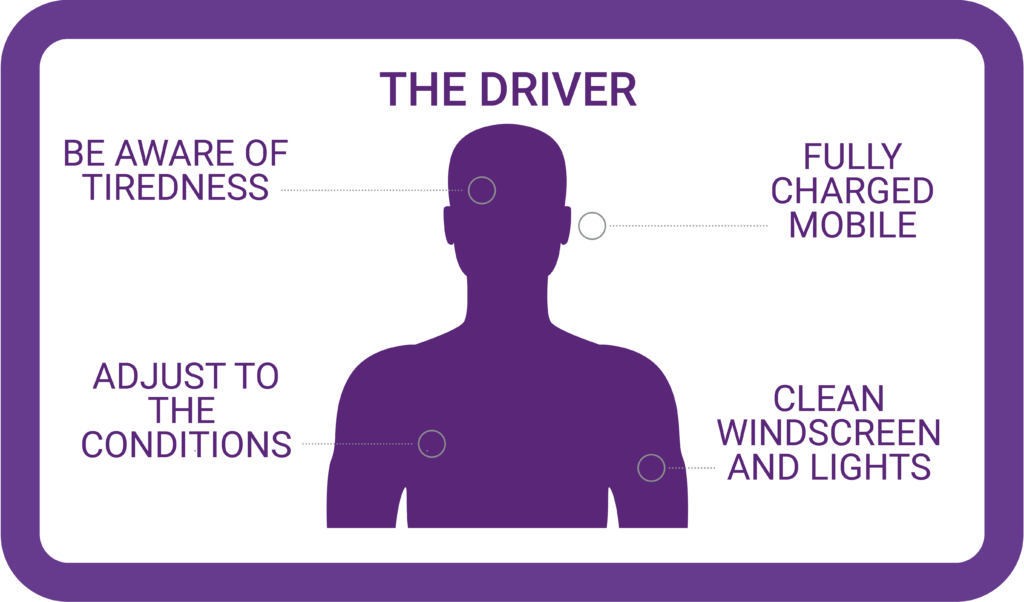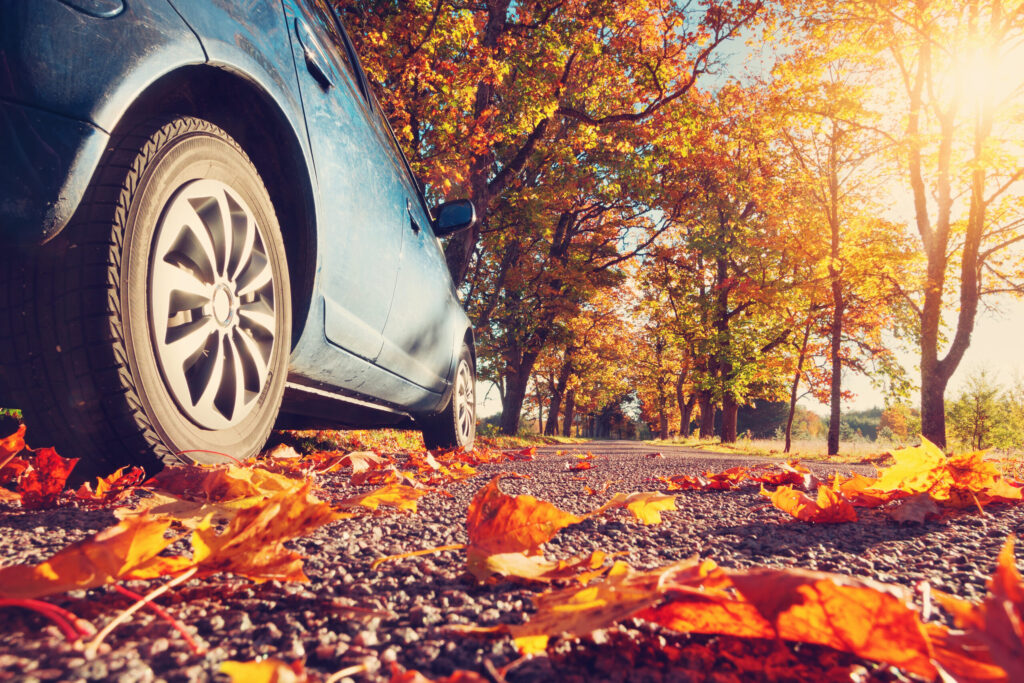
- CHECK your windscreen wipers and washers, window demisters and lights are working correctly
- CHECK screen wash levels and use a 50% mix of good quality screen wash to reduce the chance of it freezing in frosty weather
- CHECK your tyres – they should have good tread level, ideally at least 3mm of tread
- CHECK the condition of your battery and anti-freeze levels
- CHECK the fuel tank level, keep it at least a quarter full in case of unexpected delay
- DO YOU HAVE A WINTER DRIVING KIT? Ice scraper, de-icer, jump leads, shovel, blanket, sunglasses to protect from winter glare, a torch, reflective jacket and old carpet to place under vehicle wheels to help regain traction on ice or snow

- Driving in bad weather can be hard work; don’t drive if feeling tired
- Make sure you can see clearly and be seen by others; clean your windscreen and clean your lights
- Always adjust your driving to the conditions
- Ensure your mobile phone is fully charged — you may need to alert friends, family, work colleagues, breakdown organisations and the emergency services to a problem or incident

- Plan your journey in advance, check weather conditions — and question if your trip is essential
- Use at least dipped headlights in poor visibility — don’t just rely on daytime running lights
- Take food and drink with you and any regularly required medication
- Keep to main roads where possible — minor roads may not have been treated. Avoid exposed routes particularly in high winds
- Leave extra space between you and the vehicles ahead — stopping distances are greatly increased in wet and icy conditions
- Don’t brake suddenly — it may lock your wheels and create a skid
- Approach road junctions with extra caution, road markings may not be visible
- Avoid driving through floods. If you have to, drive slowly, use a low gear, keep engine revs high and continuously move forward to avoid stalling. Test your brakes after driving through water
- Be careful where you park. Park off road where possible — ‘hit whilst parked’ collisions are particularly common during icy conditions.
We also recommend completing our ‘Adverse Weather’ e-learner, which you can access via the app or hub.




